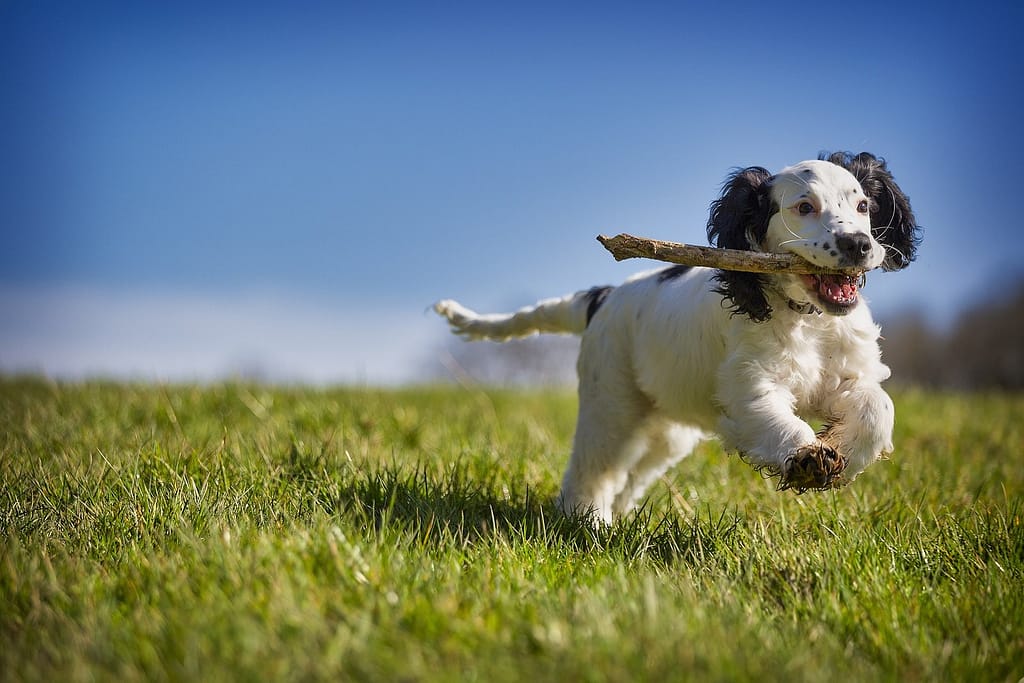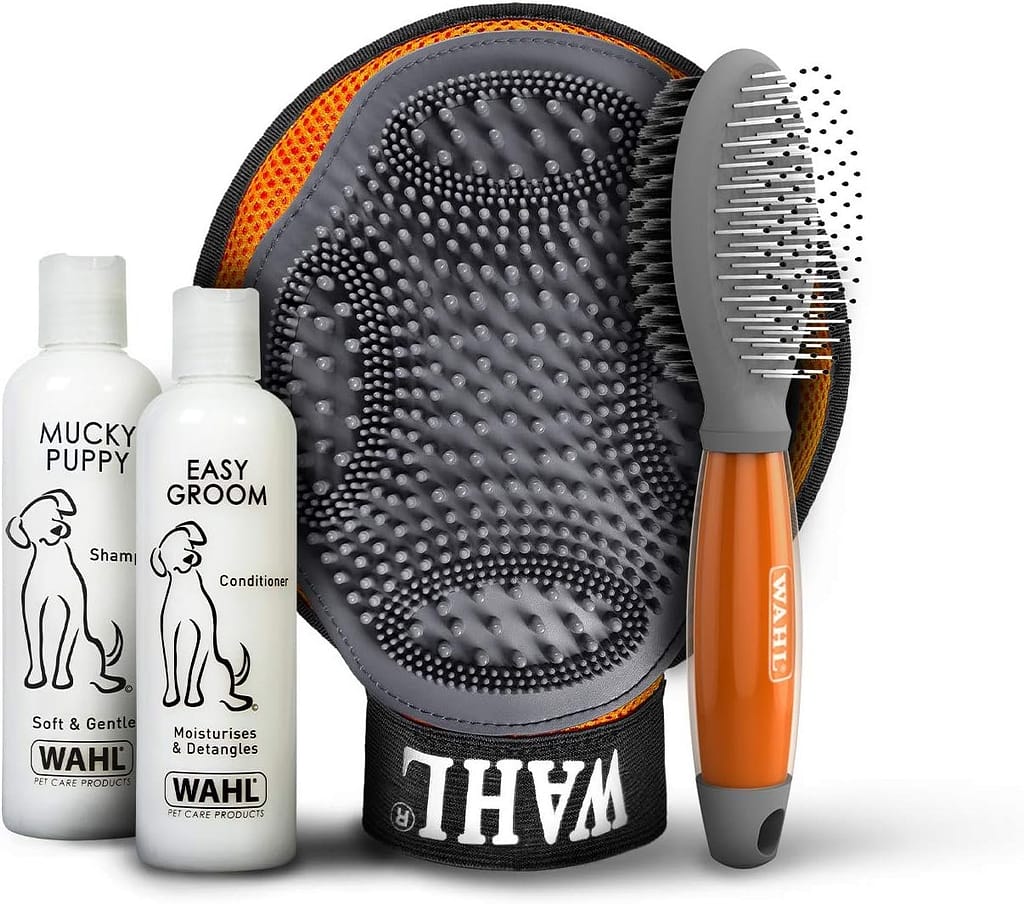
Introduction to Puppy Care
Puppy care is an essential aspect of responsible pet ownership that directly impacts the emotional and social development of young dogs. Proper care during the early stages of a puppy’s life lays the foundation for a well-adjusted, healthy canine companion. This critical period, which usually lasts from birth to about six months, includes essential activities such as feeding, training, socialization, and regular veterinary check-ups. Each of these components plays a significant role in ensuring that your puppy grows into a happy and well-behaved adult dog.


One of the primary responsibilities of puppy owners is to provide a nurturing environment that fosters social interaction and emotional stability. Socialization, which involves exposing your puppy to various people, pets, and experiences, is vital for developing their coping skills and reducing anxiety in new situations. A well-socialized puppy is more likely to grow into a friendly and confident adult dog, making interactions with people and other animals smoother and more enjoyable.
Additionally, proper nutrition is crucial during a puppy’s early development. A balanced diet specifically formulated for puppies ensures that they receive the essential nutrients necessary for healthy growth and development. Choosing the right puppy food not only supports their physical health but also contributes to their overall happiness and energy levels.
Furthermore, puppy care involves adhering to a regular vaccination and deworming schedule advised by a veterinarian to protect against common canine illnesses. This proactive approach to health care minimizes the risk of serious health problems and promotes a long, fulfilling life for your puppy.


In conclusion, the importance of early puppy care cannot be overstated. By actively engaging in your puppy’s development and understanding the responsibilities that come with ownership, you set the stage for a rewarding companionship that will last for years. This guide will explore various aspects of puppy care, equipping you with the practical knowledge needed to provide the best start for your new furry friend.
Preparing Your Home for a New Puppy
Welcoming a new puppy into your home is an exciting venture, and proper preparation is essential in ensuring a safe and comfortable environment for your furry companion. The first step is to puppy-proof your living space. This involves removing potential hazards such as loose wires, small objects, and toxic plants that could pose serious risks to your curious puppy. Ensuring that heavy furniture is secured can prevent accidents from occurring as your puppy explores their new surroundings.
Selecting appropriate sleeping arrangements is equally important. Establish a cosy sleeping area where your puppy can feel secure and relaxed. A designated spot, away from high-traffic areas, provides a sense of safety. Using a comfortable bed that is easy to wash will enhance their comfort, and it is advisable to introduce this space gradually so that your puppy can acclimate to their new home.
In addition, gathering necessary supplies is critical before bringing the puppy home. Essential items include food and water bowls that are appropriate for your puppy’s size. Opting for non-slip bowls will prevent spills and messes. A selection of toys is also important, as these serve not only to entertain but also provide mental stimulation and help prevent destructive behaviour. Chew toys and interactive puzzles can be beneficial, particularly for teething puppies.
Moreover, ensuring that you have proper food tailored to your puppy’s specific needs will set the foundation for their health and development. A balanced diet, suitable for their age and breed, is vital. Familiarizing yourself with training supplies such as pads for potty training will also assist in developing good habits from the start. By addressing these key elements, you will create a welcoming, safe home where your new puppy can thrive.
Feeding Your Puppy: Nutrition Essentials
Providing proper nutrition is crucial for the healthy growth and development of your puppy. Puppies have unique dietary needs that differ from those of adult dogs, as they require a balanced mix of proteins, fats, carbohydrates, vitamins, and minerals to support their rapid growth. When selecting the right food for your puppy, it is important to consider their age, breed, and size, as these factors influence their nutritional requirements.
For optimal puppy nutrition, choose a high-quality commercial puppy food that meets the standards set by the Association of American Feed Control Officials (AAFCO). Look for labels that specify “complete and balanced” nutrition for growing puppies. Generally, larger breeds require food formulated for large-breed puppies to prevent rapid growth, which can lead to skeletal issues later in life. On the other hand, small breed puppies benefit from specially designed formulas that cater to their higher metabolism and smaller mouths.
Establishing a feeding schedule is also vital. Most puppies do well with three to four meals a day to ensure they receive adequate nutrients throughout the day. As your puppy matures, you can gradually reduce the number of meals to two per day. Monitor portion sizes according to the feeding guidelines on the packaging, adjusting as necessary based on your puppy’s growth rate and activity level.
Introducing new foods should be done gradually over a week to prevent digestive upset. Mix a small amount of the new food with the old food, slowly increasing the proportion of the new food. Keep an eye on your puppy’s stool consistency and energy levels, as these can be indicators of dietary success or distress. Signs of a healthy diet include a shiny coat, bright eyes, and an active demeanour. Conversely, diarrhoea, lethargy, or persistent itching may suggest a dietary imbalance and warrant a consultation with a veterinarian.
Health Care: Vet Visits and Vaccinations
Ensuring the health and well-being of a puppy requires a proactive approach, which includes regular veterinary visits and adhering to a prescribed vaccination schedule. Puppies are particularly vulnerable to a range of illnesses, making early and consistent check-ups an essential component of their care. These vet visits provide an opportunity for the veterinarian to assess the puppy’s overall health, monitor growth and development, and identify any potential health concerns before they escalate.
During their initial vet visits, puppies typically receive core vaccinations, which are crucial for preventing diseases such as parvovirus, distemper, and hepatitis. These vaccinations should ideally begin around six to eight weeks of age and continue every three to four weeks until the puppy reaches approximately sixteen weeks old. Keeping a detailed health record is vital during this period, as it allows pet owners to track which vaccinations have been administered and when the next doses are due.
Beyond vaccinations, regular veterinary check-ups also allow for the discussion of other essential health topics, such as parasite prevention (including treatments for fleas, ticks, and worms), dental care, and nutrition. Furthermore, during these visits, veterinarians often recommend spaying or neutering, which can help prevent certain health issues and reduce the number of unwanted animals. Understanding the significance of these procedures can greatly impact a puppy’s long-term health.
As a puppy grows, routine vet visits remain critical. These appointments can help detect any emerging health problems, providing an opportunity for early interventions. They also serve as a valuable resource for pet owners seeking guidance on dietary changes, exercise needs, and behaviour management. By prioritizing veterinary care and vaccinations, pet owners lay the groundwork for a healthy, happy, and fulfilling life for their puppies.
Socialization and Training: Building Good Behaviors
Socialization is a fundamental aspect of puppy care that significantly influences a dog’s future behaviour. The critical period of socialization typically occurs between three and fourteen weeks. During this time, puppies are particularly receptive to new experiences, making it vital to expose them to a variety of people, environments, animals, and stimuli. This exposure helps to establish a foundation for well-rounded behaviour, reducing the likelihood of fear-based reactions in the future.
Effective training is equally essential for building good behaviours in puppies. Positive reinforcement is a widely recommended method, where desired behaviours are rewarded with treats, praises, or playtime. This approach not only strengthens the bond between the puppy and the owner but also encourages the puppy to repeat the behaviour in the future. Simple commands such as “sit,” “stay,” and “come” should be introduced early on, allowing the puppy to understand the basics of obedience while fostering a sense of security and routine.
In addition to structured training sessions, everyday interactions can serve as valuable training opportunities. For instance, teaching a puppy to wait at the door before entering or to walk politely on a leash helps integrate obedience into daily life. Consistency in commands and rewards will aid in reinforcing good behaviour. Moreover, exposing puppies to various experiences—such as car rides, trips to the park, or even meetings with different breeds—helps cultivate adaptability, making them well-adjusted pets.
Socialization and training require dedication and patience. However, investing time in these areas will yield significant benefits, resulting in a confident, well-behaved dog. Through a combination of positive reinforcement techniques and diverse experiences, owners can help their puppies navigate the world with good manners and a positive attitude.
Exercise and Play: Keeping Your Puppy Active
Regular exercise and playtime are vital components of a puppy’s development, impacting both its physical and mental health. Puppies, much like human children, possess an abundance of energy, which needs to be expended not only to stay physically fit but also to develop their behaviour and emotional skills. Engaging in appropriate activities helps prevent undesirable behaviours that often arise from pent-up energy, such as chewing and excessive barking.
To create a well-rounded exercise routine, it is important to consider the puppy’s age and breed. Younger puppies might benefit from shorter bursts of activity, while older, more energetic breeds may require longer play sessions. Daily walks are a fundamental part of a puppy’s exercise regime, contributing to essential socialization experiences. Inevitably, exposing them to various environments, people, and other animals during walks can foster good behaviour as they grow.
Interactive play is another critical aspect of keeping your puppy active. Various toys, such as fetch balls or tug ropes, can be used to engage your puppy in thrilling games. Puzzle toys are highly recommended as they stimulate mental activity and encourage problem-solving, enhancing a puppy’s cognitive development. Additionally, incorporating structured activities such as agility training or swimming can be particularly enriching while providing a healthy outlet for excess energy.
Establishing a routine that balances play and exercise is crucial. Aim for a mix of structured activities and free playtime to allow your puppy to develop independence and creativity. As they mature, you may need to adjust the frequency and intensity of these activities to meet their evolving needs. Overall, regular exercise and positive play experiences contribute to a happy, well-adjusted puppy that is more than ready to face the world.
Grooming Your Puppy: Essential Care Tips
Grooming is a fundamental aspect of puppy care that plays a vital role in the overall health and well-being of your furry friend. Establishing a regular grooming routine helps maintain your puppy’s coat, keeps their skin healthy, and supports early detection of any potential health issues. The frequency of grooming largely depends on the breed and coat type; long-haired breeds may require grooming several times a week, while short-haired breeds may only need biweekly attention.
Bathing is an essential part of puppy grooming. Depending on the puppy’s lifestyle and coat type, baths should be done every month or as necessary. Selecting a mild, puppy-specific shampoo is crucial as it is gentle on their sensitive skin. It is beneficial to create a positive bathing experience by using warm water, gentle massaging, and providing treats or praise throughout the process. Additionally, ensuring that the area is safe and comfortable will help in keeping your puppy calm.
Regular brushing should not be overlooked, as it helps to prevent matting and reduces shedding. For puppies with long or thick coats, utilizing a suitable brush can make the task easier. A weekly grooming session can also serve as an excellent bonding time between the owner and the puppy, allowing for a calming environment filled with affection.
Nail trimming is another crucial aspect of grooming that should occur every 3-4 weeks, or as needed, to prevent overgrowth and discomfort. Proper tools and techniques should be employed; if you are uncertain, professional groomers can assist. Along with nail care, ear cleaning should be included in the grooming routine. Using a veterinarian-approved ear cleaner will help prevent infections and maintain overall ear health.
Incorporating these grooming activities into your puppy’s routine can foster trust and compliance, ultimately transforming grooming into a pleasant and rewarding experience for both the puppy and the owner.
Common Behavioral Issues and Solutions
Puppies, like young children, may occasionally exhibit behavioural issues that require patience and guidance from their owners. Understanding these common problems is crucial for fostering a harmonious relationship between the puppy and its environment. One prevalent issue is chewing. Puppies often explore their surroundings through their mouths, which can lead to destructive chewing on furniture, shoes, or other items. This behaviour typically arises from teething discomfort or boredom. To mitigate this, provide appropriate chew toys and engage in regular playtime to channel their energy constructively.
Barking is another common behaviour among puppies, and it can stem from various triggers, including excitement, fear, or a desire for attention. While barking is a natural form of communication, excessive barking can be disruptive. To manage this behaviour, owners should identify the underlying cause of the barking. Techniques such as using commands, rewarding quiet behaviour, and providing ample socialization can help reduce unnecessary barking. Additionally, ensuring that a puppy feels secure in its environment can lead to a decrease in anxiety-related barking.
House training challenges are also frequent during the early stages of a puppy’s life. Accidents in the house can be frustrating for owners, but it is essential to approach this issue with understanding. Puppies are not inherently aware of where they should relieve themselves, and consistency is key in addressing this behaviour. Establishing a regular feeding schedule and taking the puppy outside frequently can help reinforce the desired behaviour. Positive reinforcement for outdoor elimination coupled with patience can yield successful results.
By understanding these common behavioural issues—chewing, barking, and house training—puppy owners can effectively implement strategies to correct them. Acknowledging the root causes allows for tailored solutions that promote long-lasting changes, ensuring a well-adjusted and happy puppy in the home.
Creating a Long-lasting Bond with Your Puppy
Building a strong bond with your puppy is essential for both your emotional well-being and your pet’s overall development. The foundation of this connection lies in love, trust, and companionship. Engaging in daily activities that promote interaction can significantly strengthen the relationship you share with your puppy. These moments are crucial in establishing a secure and nurturing environment where your puppy feels safe and valued.
Cuddle time plays a pivotal role in fostering a close bond. Taking the time to snuggle with your puppy not only provides comfort but also helps instil a sense of security. This affectionate behaviour encourages a strong emotional attachment, enabling your puppy to develop trust in you as a caregiver. Regularly setting aside moments for gentle caresses can enhance the emotional connection further, allowing your puppy to feel cherished.
Playtime is another vital aspect of developing a lasting bond. Engaging in interactive play not only entertains your puppy but also creates cherished memories that solidify companionship. Toys designed for tugging, fetching, or even puzzle-solving can stimulate your puppy both mentally and physically. Through play, you learn each other’s preferences and communication styles, allowing for a deeper understanding of your puppy’s needs.
Consistent training is equally important in nurturing this bond. Establishing clear boundaries and expectations helps foster trust and respect. Reward-based training methods not only improve behaviour but also create an enjoyable learning environment. Through this process, your puppy recognizes you as a leader, which enhances the relationship dynamic. The emotional benefits of training extend to you as well, offering a sense of accomplishment while reinforcing the bond you share with your puppy.
Try our “Keeping Your Puppy Healthy: Essential Guide for New Dog Owners” Click Here
Helpful Links.
UK Kennel Club: The UK’s largest organisation dedicated to protecting and promoting the health and welfare of all dogs.
RSPCA: The Royal Society for the Prevention of Cruelty to Animals provides advice and support for pet owners
Dogs Trust: The UK’s largest dog welfare charity, offering rehoming, education, and campaigning.
Blue Cross: A veterinary charity providing care for sick, injured, and homeless animals.
National Animal Welfare Trust: A UK charity providing care for animals in need and promoting responsible pet ownership.
Battersea Dogs & Cats Home: A UK charity providing rehoming, veterinary care, and education for dogs and cats.






